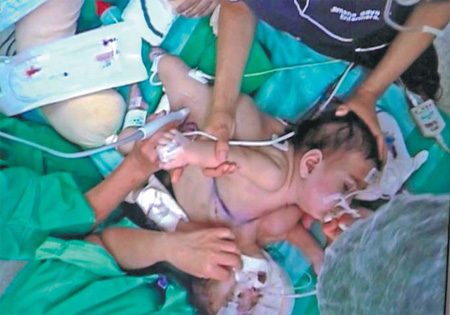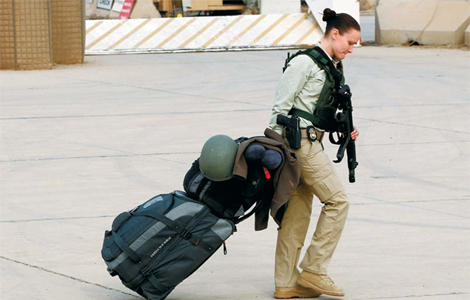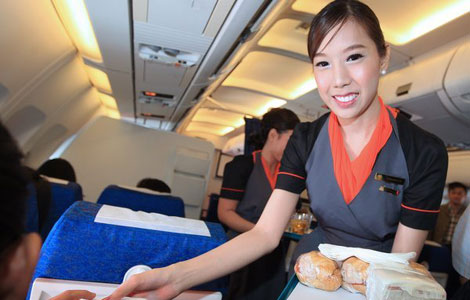Doctors separate conjoined twins in 20-hour operation
Updated: 2011-12-16 07:37
(China Daily)
|
|||||||||||
SANTIAGO, Chile - Chilean doctors successfully separated conjoined twin girls in a marathon 20-hour surgery, saying on Wednesday that the operation went extremely well despite challenges.
 |
|
In this image taken from a video released by Luis Calvo Mackenna Hospital, conjoined twins Maria Paz and Maria Jose Paredes Navarrete are seen prior to a surgery to separate them in Santiago, Chile, on Tuesday. Chilean doctors separated the 10-month-old conjoined twins who were joined at the thorax, abdomen and pelvis after a 20-hour operation. Luis Calvo Mackenna Hospital / Associated Press |
The 10-month-old twins Maria Paz and Maria Jose Paredes Navarrete were recovering in an intensive care unit, and doctors said the next two days would be critical as they watch for infections or other possible complications.
Parents Jessica Navarrete and Roberto Paredes kept an anxious vigil at Luis Calvo Mackenna Hospital in Santiago as doctors separated the twins at the thorax, abdomen and pelvis. It was the seventh and most complex operation yet for the twins.
Doctors successfully separated the twins late on Tuesday night. Chief Surgeon Francisco Ossandon described it as the moment "the girls finished the process of being born".
"Before, they had two souls and one body," Ossandon said.
Surgery on one of the twins was completed early on Wednesday after a total of 19 hours, while for the other it took more than 20 hours.
"We had a number of difficulties during the surgery. There were some surprises, but we were able to fix, solve the problems," Ossandon said at a news conference.
He added that the twins came out of the surgery in good condition. Ossandon, however, didn't rule out future complications involving the effects from anesthesia and possible infections.
"We're very happy because we think they've had the best evolution we could have hoped for," he said.
The girls' parents appeared in televised images as they kissed the twins before the operation. Then afterward, the mother and father gazed lovingly at the sleeping girls from beside their separate cribs in the intensive care unit.
Some Chilean television stations occasionally broke into their regular programming to broadcast updates from the doctors, both during and after the delicate surgery.
"The next 48 hours will be the most critical in terms of the ... risk they face of dying," said Carlos Acuna, chief of the intensive care unit. He said the girls faced risks of various organs ceasing to function, and also had kidney and lung problems.
The girls' mother said she was hoping for a miracle when the high-risk operation began on Tuesday morning.
The Chilean twins presented a particularly difficult challenge because they were born sharing many of the same internal organs and even urinary system. About 100 people participated in the procedure, including 25 surgeons and anesthesiologists.
Perhaps providing some comfort to the parents was the hospital's history with conjoined twins. Staff members there have separated three sets before. A fourth set, however, died during surgery due to cardiac complications.
According to the University of Maryland Medical Center, one out of every 200,000 live births worldwide results in conjoined twins. About 35 percent survive only one day, while the overall survival rate is 5 percent to 25 percent, depending on various factors, including where they are joined.
While rare, such surgeries have become increasingly frequent over the years due to improvements in surgery, anesthesia and critical care, said Eric Strauch, a surgeon at the University of Maryland Medical Center. "We've gotten better at dealing with them," Strauch said. "I think people are willing to undertake it more."
Associated Press
Hot Topics
HIV/AIDS, Egypt protest, Thanksgiving, climate change, global economic recovery, home prices, high-speed railways, school bus safety, Libya situation, Weekly photos
Editor's Picks

|

|

|

|

|

|







